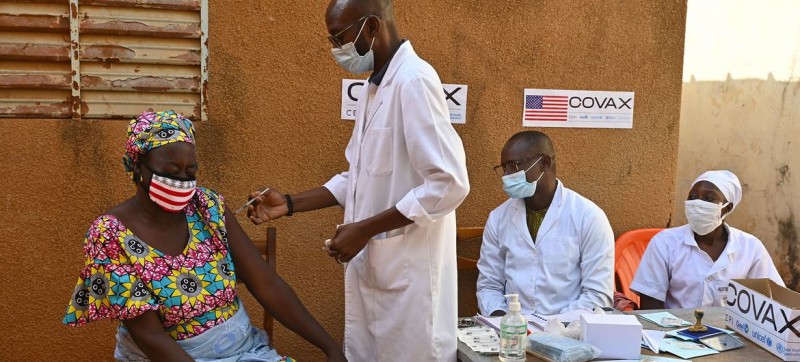Contents
A mother receives her second dose of the COVID-19 vaccination at a health centre in Obassin, Burkina Faso. Blanket COVID-19 vaccine booster programmes could prolong the pandemic and increase inequity, the Director-General of the World Health Organization (WHO) warned on Wednesday. “No country can boost its way out of the pandemic,” said WHO chief Tedros Adhanom Ghebreyesus, speaking in Geneva during his final press briefing for the year. “And boosters cannot be seen as a ticket to go ahead with planned celebrations, without the need for other precautions,” he added. The WHO Strategic Advisory Group of Experts on Immunization (SAGE) has issued interim guidance on booster doses, expressing concern that mass programmes for countries that can afford them, will exacerbate vaccine inequity. Currently, around 20 per cent of all vaccine doses administered are being given as boosters or additional doses. “Blanket booster programmes are likely to prolong the pandemic, rather than ending it, by diverting supply to countries that already have high levels of vaccination coverage, giving the virus more opportunity to spread and mutate,” said Tedros. He stressed that the priority must be on supporting countries to vaccinate 40 per cent of their populations as quickly as possible, and 70 per cent by the middle of 2022. “It’s important to remember that the vast majority of hospitalizations and deaths are in unvaccinated people, not un-boosted people,” he said. “And we must be very clear that the vaccines we have, remain effective against both the Delta and Omicron variants.” A COVID-19 patient is being treated during the pandemic at a hospital in Matanzas, Cuba. Tedros reported that while some countries are now rolling out blanket programmes – for a third, or even fourth shot, in the case of Israel – only half of WHO’s 194 Member States have been able to inoculate 40 per cent of their populations due to “distortions in global supply”. Enough vaccines were administered globally in 2021, he said. Therefore, every country could have reached the target by September, if doses had been distributed equitably through global solidarity mechanism COVAX and its African Union counterpart, AVAT. “We’re encouraged that supply is improving,” said Tedros. “Today, COVAX shipped its 800 millionth vaccine dose. Half of those doses have been shipped in the past three months.” He again urged countries and manufacturers to prioritize COVAX and AVAT, and to work together to support nations furthest behind. While WHO projections show sufficient supply to vaccinate the entire global adult population by the first quarter of 2022, and to give boosters to high-risk populations, only later in the year will supply be sufficient for extensive use of boosters in all adults. Reflecting on the past year, Tedros reported that more people died from COVID-19 in 2021 than from HIV, malaria and tuberculosis combined, in 2020. Coronavirus killed 3.5 million people this year, and continues to claim some 50,000 lives each week. Tedros said although vaccines “undoubtedly saved many lives”, inequitable sharing of doses resulted in many deaths. “As we approach a new year, we must all learn the painful lessons this year taught us. 2022 must be the end of the COVID-19 pandemic. But it must also be the beginning of something else – a new era of solidarity,” New WHO guidance recommends that health workers use either a respirator or medical mask, in addition to other personal protective equipment (PPE), when entering the room of a patient with suspected or confirmed COVID-19. Respirators, which includes N95 and FFP2 masks, as well as others, should especially be worn in settings with poor ventilation. As many health workers across the world are unable to access these items, WHO is urging manufacturers and countries to scale up production, procurement and distribution of both respirators and medical masks. Tedros stressed that all health workers must have all the tools they need to do their jobs, which includes training, PPE, a safe work environment, and vaccines. “It’s frankly difficult to understand how a year since the first vaccines were administered, three in four health workers in Africa remain unvaccinated,” he remarked. Diverting vaccine supply

Against vaccine inequity
Hope for 2022
Guidance for health workers



